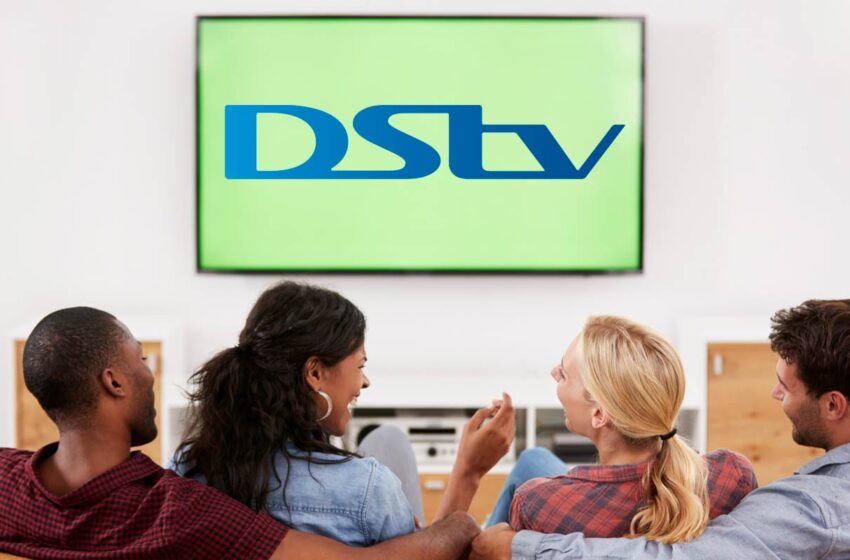Canal+ completes acquisition of MultiChoice: What it means for DStv and GOtv users

DStv 2025: Comparing subscription prices and packages in Nigeria and South Africa.
Canal+ has officially taken control of MultiChoice, marking one of the biggest shakeups in Africa’s pay-TV market. The French media giant confirmed that all conditions of the deal have been met, giving it full control of the parent company of DStv and GOtv. The announcement, made in late September 2025, followed months of regulatory approvals and corporate restructuring.
What Changes Immediately for DStv and GOtv Subscribers?
For now, Canal+ and MultiChoice have assured customers that there will be no sudden changes to their subscriptions. DStv and GOtv users will continue to access their packages, pricing, and customer services as usual. The companies said maintaining stability was crucial while integration plans are drawn up.
Canal+ Brings Global Content and Streaming Expertise
Industry analysts suggest that the takeover will broaden the content library available to African audiences. Canal+ is expected to merge some of its European and francophone African programming with DStv’s popular offerings. Beyond television channels, the group is also pushing strongly into direct-to-consumer streaming, which could lead to improved digital platforms for subscribers.
Sports Rights: Will SuperSport Be Affected?
One of the biggest concerns among subscribers is whether the acquisition will affect SuperSport’s dominance. For now, sports channels remain unchanged. However, analysts warn that Canal+ may repackage or shift premium rights in the medium term, especially to boost its streaming business. Any sharp changes to pricing or access could trigger regulatory scrutiny, given the importance of football and other sports in Africa.
Pricing and Subscription Packages Under Review
While DStv and GOtv packages remain unchanged today, pricing adjustments are likely over the next 12–24 months. Canal+ could introduce new bundles that mix its global content with existing DStv offerings. Still, the deal came with regulatory conditions in South Africa to protect consumers and ensure continued investment in local programming. These commitments may slow down aggressive price hikes.
Commitment to Local Content and African Storytelling
The merger also raises questions about local content and job security. MultiChoice has been a leading investor in African storytelling, and regulators insisted on safeguards to protect the industry. Canal+ has promised to continue funding local productions, which could result in more pan-African collaborations and opportunities for creators.
What GOtv Users Can Expect
For millions of lower-income households relying on GOtv, the service is expected to remain accessible and affordable. Canal+ has significant experience with low-cost TV models in francophone Africa, suggesting that GOtv could even see expansion. However, some analysts caution that Canal+ may eventually encourage migration to low-cost streaming options when internet access improves.
The Canal+ takeover of MultiChoice signals the start of a new chapter for Africa’s pay-TV landscape. For now, DStv and GOtv subscribers should not expect sudden disruptions. But over time, users are likely to see more international content, stronger streaming platforms, potential repackaging of sports rights, and gradual adjustments to pricing models. The extent of change will depend on how Canal+ balances its global ambitions with local regulatory commitments and consumer expectations.
FAQ
Q1: What does Canal+’s acquisition of MultiChoice mean for DStv subscribers?
DStv subscribers will see no immediate changes to their packages, pricing, or access. Canal+ has pledged to maintain stability during the transition. However, medium-term changes may include expanded international content, new streaming options, and possible adjustments in subscription bundles.
Q2: Will DStv or GOtv prices increase after the takeover?
Not right away. The Competition Tribunal in South Africa imposed conditions to protect consumers from sudden price hikes. That said, Canal+ may introduce new pricing structures or bundles within the next 12–24 months, especially as it integrates its global content and streaming services.
Q3: Is SuperSport safe under Canal+?
Yes, in the short term SuperSport remains unchanged and will continue to broadcast major sports events. In the medium term, Canal+ may explore repackaging sports rights to strengthen its streaming services. Any drastic changes to sports broadcasting could attract regulatory scrutiny.
Q4: Will GOtv subscribers lose access to affordable packages?
No. GOtv will remain a key product in MultiChoice’s portfolio. Canal+ has strong experience with affordable pay-TV models in francophone Africa, meaning GOtv is likely to remain accessible. In the future, GOtv users may also be encouraged to adopt budget-friendly streaming packages.
Q5: What will happen to local African content production?
Regulators made local investment a condition of the takeover. Canal+ has promised to support and expand African storytelling, so viewers can expect continued funding for Nollywood, African series, and regional programming.
Q6: Will subscribers need new decoders or apps?
Not immediately. Existing DStv and GOtv hardware and apps will continue to work. Over time, however, Canal+ could roll out new apps or upgrade streaming platforms to integrate its services.
Q7: Does this mean DStv and GOtv will merge into Canal+?
No. DStv and GOtv will retain their brand identities for now. But behind the scenes, Canal+ may unify operations, content acquisition, and streaming strategies. Sub-brands may remain, but users could see more cross-brand offerings.
Q8: How will this affect customer support and billing?
Customer support and billing will remain as is in each country. Subscribers will continue using their local service centers and online platforms. Over time, Canal+ may centralize or rebrand support services, but this would come with formal notice to customers.
Q9: Is this merger good or bad for African viewers?
It brings both opportunities and risks. On the positive side, viewers may enjoy richer international content, better streaming platforms, and continued local productions. On the downside, there could be gradual price adjustments and possible re-bundling of sports rights that may cost sports fans more.
Q10: How can subscribers protect themselves from unexpected changes?
-
Keep receipts and contracts for your subscription.
-
Monitor official communications from DStv, GOtv, and Canal+.
-
Track billing statements for price changes.
-
Watch regulatory updates, as consumer groups and competition authorities will be monitoring compliance.

